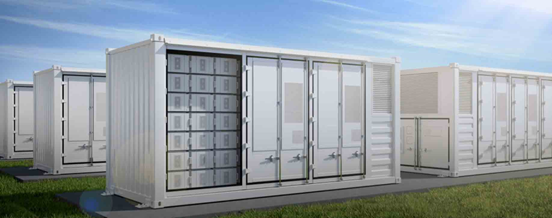In the rapidly evolving landscape of energy distribution, smart micro-grids have emerged as a revolutionary solution that brings efficiency, resilience, and sustainability to the forefront. These localized and intelligent energy networks are transforming the way we generate, distribute, and consume electricity. By leveraging advanced technologies, smart micro-grids offer a myriad of advantages that address the challenges of traditional power grids and pave the way for a more reliable and sustainable energy future.
The Advantages of Smart Micro-Grids
Efficient Energy Distribution
One of the key advantages of smart micro-grids is their ability to optimize energy distribution at a local level. Traditional power grids often suffer from transmission losses over long distances, leading to inefficiencies and energy wastage. Smart micro-grids, on the other hand, operate on a smaller scale, enabling more precise control and distribution. This localized approach reduces transmission losses and enhances overall energy efficiency, ensuring that generated power is effectively utilized within the community.

Enhanced Resilience and Reliability
Smart micro-grids excel in providing enhanced resilience and reliability in the face of disruptions, whether caused by extreme weather events, natural disasters, or other unforeseen circumstances. Unlike centralized power grids that can be vulnerable to large-scale outages, smart micro-grids are designed to function autonomously. They can disconnect from the main grid during emergencies, ensuring continued power supply to critical facilities such as hospitals, emergency services, and communication networks. This decentralized nature enhances the overall resilience of the energy infrastructure.
Integration of Renewable Energy Sources
The integration of renewable energy sources is a cornerstone of the smart micro-grid advantage. These grids are well-equipped to harness the power of solar, wind, and other clean energy sources. By seamlessly integrating renewable technologies, smart micro-grids contribute to the reduction of carbon emissions and dependence on fossil fuels. This shift towards sustainable energy sources aligns with global efforts to combat climate change and create a more environmentally friendly energy ecosystem.
Demand Response and Flexibility
One notable advantage of smart micro-grids lies in their ability to implement demand response strategies and provide flexibility in energy consumption. Through intelligent algorithms and automation, these grids can adjust energy usage based on demand patterns, pricing fluctuations, and grid conditions. This not only helps in optimizing energy use but also empowers consumers to actively participate in managing their energy consumption. The flexibility offered by smart micro-grids is a key factor in creating a more dynamic and responsive energy ecosystem.
Economic Benefits and Job Creation
The adoption of smart micro-grids goes beyond environmental considerations; it also brings significant economic benefits to communities. By promoting local energy generation and distribution, these grids foster economic growth and job creation. The development, installation, and maintenance of smart micro-grids create employment opportunities in the renewable energy sector and contribute to the growth of local economies. Additionally, the reduced reliance on centralized power systems can lead to cost savings, further boosting the economic advantages associated with smart micro-grid implementations.
Advanced Monitoring and Control
Smart micro-grids leverage advanced monitoring and control systems that enable real-time data analysis and decision-making. These systems, enriched by the incorporation of green energy storage solutions, seamlessly integrate with the micro-grid infrastructure. Green energy storage, including technologies like advanced batteries and other sustainable storage solutions, plays a pivotal role in optimizing energy distribution. By storing excess energy generated during peak production periods, green energy storage systems enhance the micro-grid's ability to balance supply and demand. Renowned for its expertise in Smart Micro-grid solutions, Huawei stands as a reliable provider known for trustworthy solutions. This not only ensures a more stable and reliable power supply but also underscores the commitment to environmentally friendly practices within the micro-grid framework.

Conclusion
In conclusion, the smart micro-grid advantage is reshaping the energy landscape by offering efficient, resilient, and sustainable solutions to the challenges faced by traditional power grids. Through optimized energy distribution, enhanced reliability, integration of renewable sources, advanced monitoring, and economic benefits, smart micro-grids are paving the way for a more sustainable and decentralized energy future. As technology continues to advance, the widespread adoption of smart micro-grids holds the promise of a greener, more resilient, and economically vibrant global energy ecosystem.
